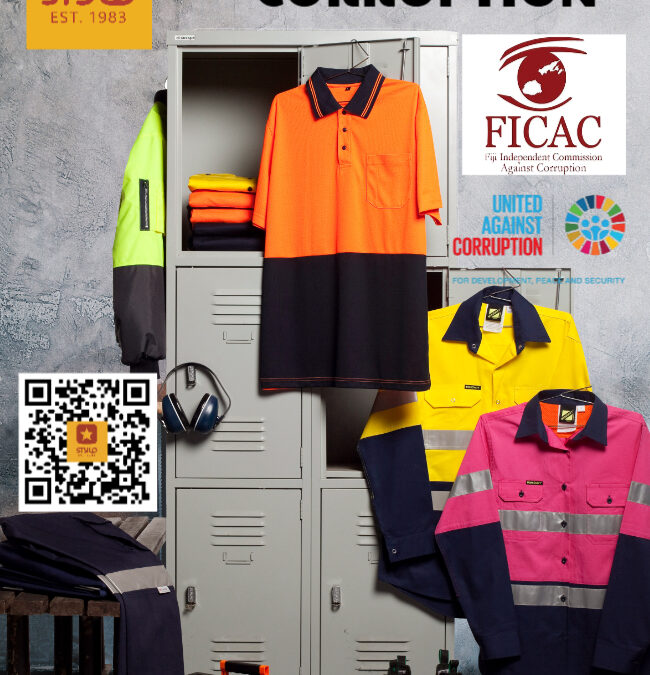International Anti-Corruption Day

How to Choose the Right Work Pant Trouser for Your Industry
July 9, 2024OUR BIGGEST COMPETITION IS CORRUPTION
Corruption is not just a buzzword; it is a persistent issue that undermines the very foundations of fair business practices. At its core, corruption represents a lazy approach to achieving success—one that is fueled by greed and deception. It serves as a convenient cover for their own internal insecurities, whether personal or organizational, and often masks deficiencies in product quality and service performance. When individuals or companies lack confidence in their offerings, they may resort to corrupt practices to secure financial advantages through tenders, contracts, or new orders.
Winning on merit—through hard work and dedication—is a grueling journey. It requires weeks, months, and sometimes years of rigorous research and development (R&D) to elevate products to international standards and maintain that level of excellence, consistently. This process involves skilled human resources who understand these standards and engage in continuous dialogue with testing authorities to ensure compliance. The costs associated to attaining these standards can be exceptionally high. Ultimately, this commitment benefits the customer—the end user—who deserves confidence in using safe products that meet established safety benchmarks.
In stark contrast, corruption by-passes these essential safety checks and standards. The result? End users are left vulnerable, potentially exposed to subpar products that fail to meet safety requirements. In this scenario, only the ‘giver’ and ‘receiver’ of bribes benefit while the end user bears the risks linked with questionable quality.
It’s actually dejecting to think that some readers might dismiss these observations as “naïve” or “out of touch with reality”. However, this reaction highlights a troubling cultural norm—a mindset ingrained over generations—that views corruption as an acceptable business practice. The harsh truth is that there are real-world consequences for such actions: corruption is illegal and unethical, and those who are part of it, ultimately have to suffer the penalties. The key question for those deep-rooted in this culture should not be “if” they will face repercussions but rather “when” their actions will be exposed.
To draw a parallel: consider domestic violence—a universally recognized wrong that has historically been accepted by some as a form of discipline passed down through generations. Awareness campaigns led by NGOs, law enforcement agencies, government ministries, and dedicated individuals have worked tirelessly to change this harmful mindset. Through collective effort and resilience, society can break the cycle of domestic violence for future generations.
The same can apply to corruption; individuals, families, and businesses must consciously choose to dismantle this cycle if we ever hope to foster a healthier ethical landscape for future generations. It has to start somewhere, whether from one individual, a community, or a business collective to create the momentum and break the cycle.
In Fiji, the Fiji Independent Commission Against Corruption (FICAC) has made significant strides since its inception in raising awareness about corruption. They are actively changing mindsets among individuals, businesses and Government bodies while holding accountable those who engage in corrupt practices through indictments and prosecutions.
At Ranjit Garments Mfg Ltd (RGDirect), we take pride in our collaboration with FICAC over the past three years. Our workshops have focused on educating our staff about the consequences of corruption. As the first private company in Fiji to engage with FICAC’s initiatives, we are committed to continuing this partnership for years to come. Each member of our team wears a “I don’t accept bribes” badge as a testament to our integrity when conducting business or interacting with third parties—a daily reminder of our unwavering commitment to ethical practices.
In conclusion, combating corruption requires collective action from all sectors of society. We must challenge ingrained beliefs about what constitutes acceptable business behavior and strive for transparency and accountability at every level. Only then can we hope to create a future where integrity prevails over deceit and is a level playing field for all.

